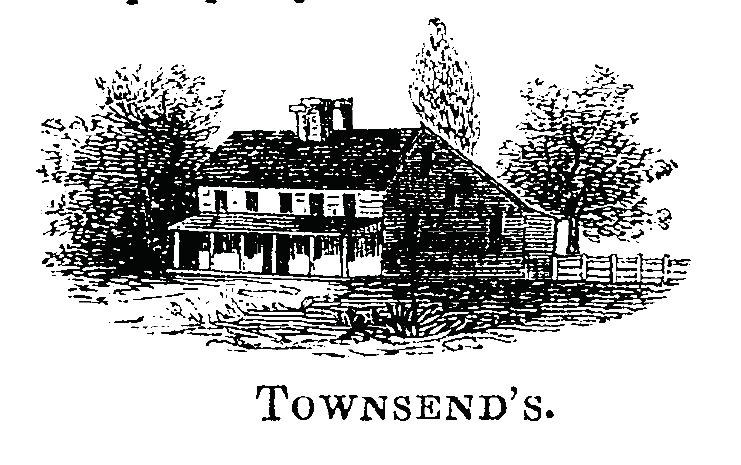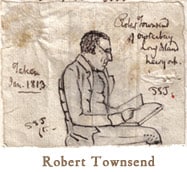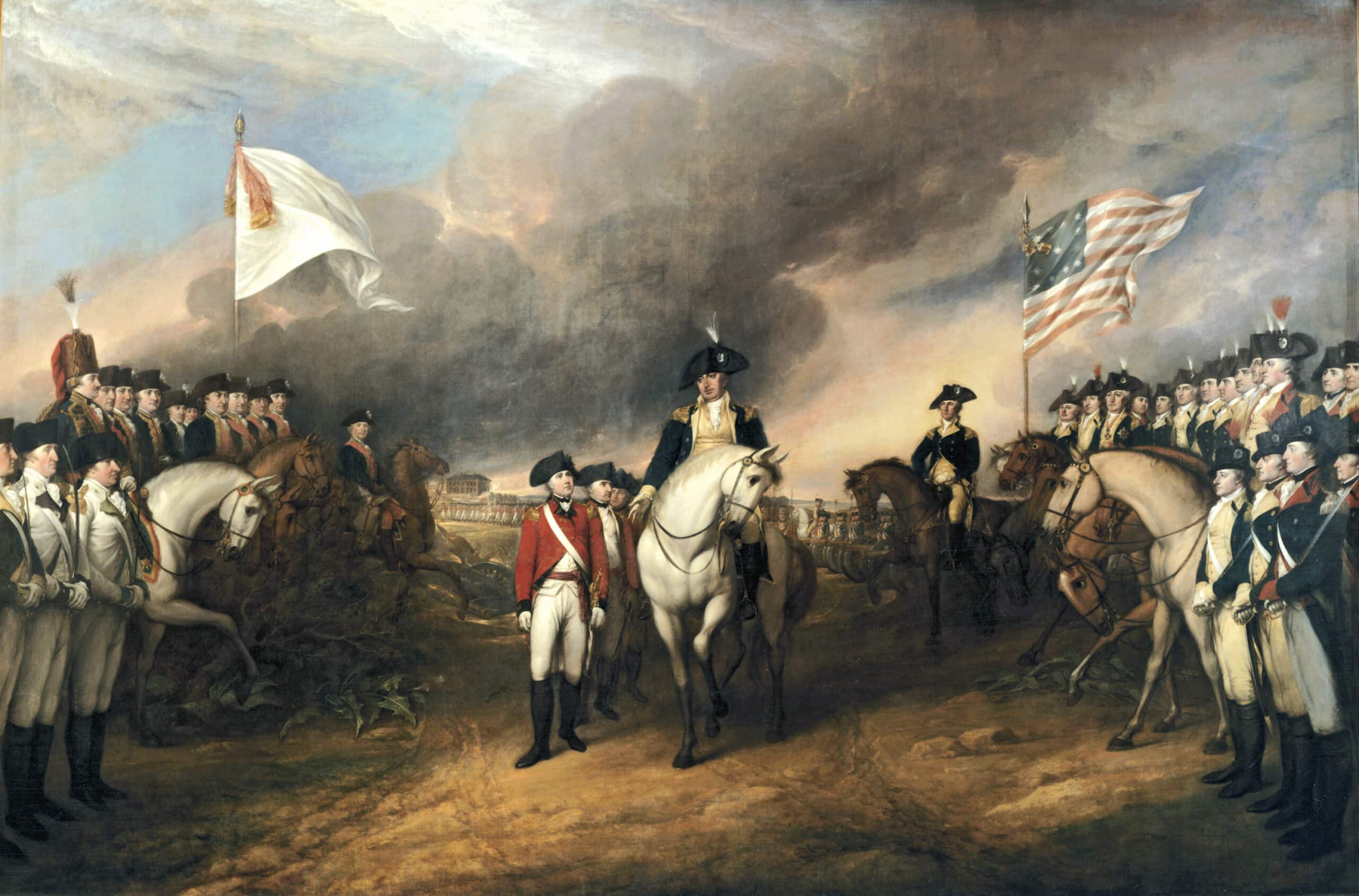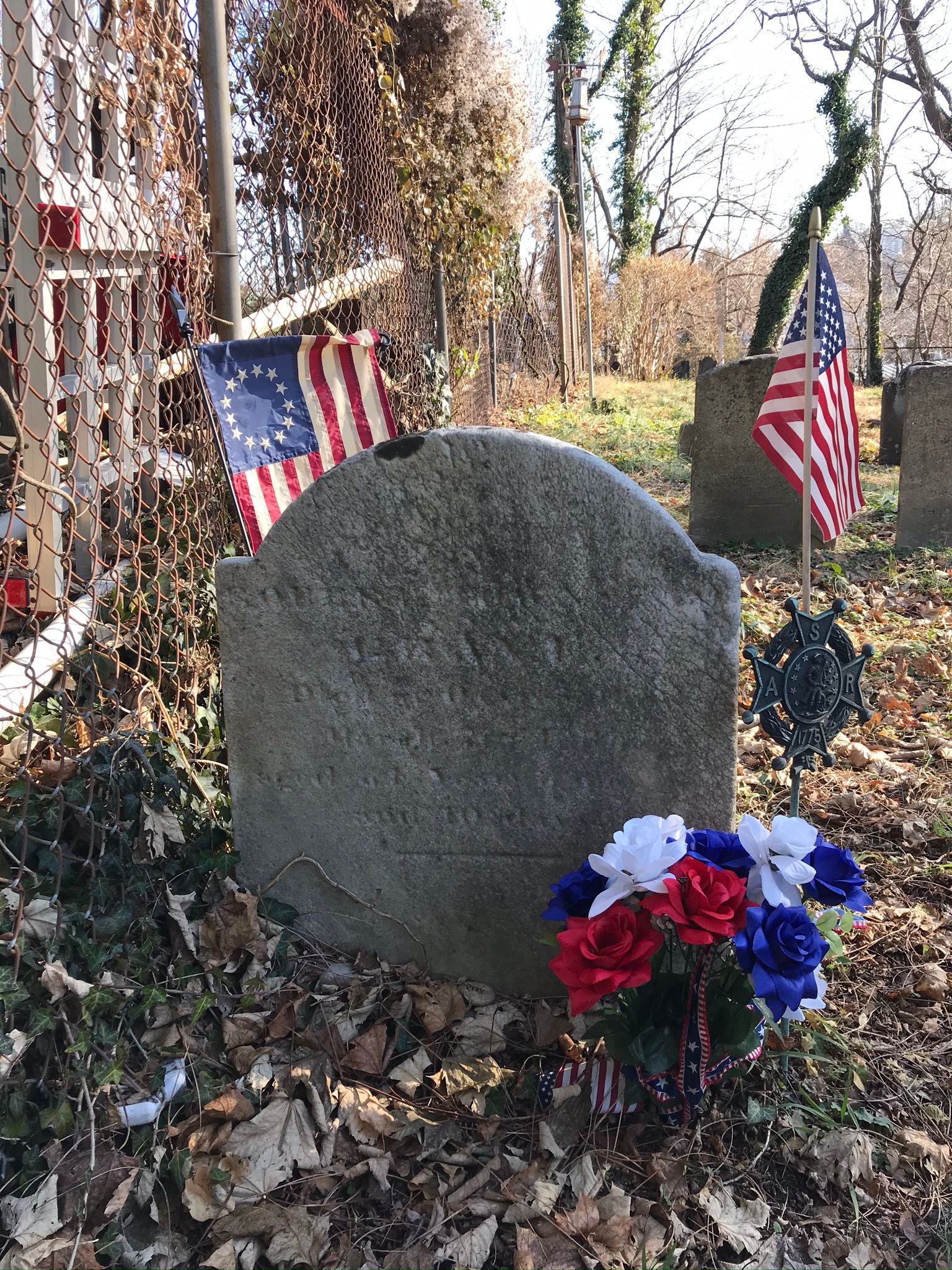Robert Townsend was the second primary piece of the Culper Spy Ring during the Revolutionary War that operated around New York City after the British took control.
He operated under the alias Samuel Culper Jr. and held a position within the city that allowed him to gain accurate intel. His identity was a secret during the war, and only Abraham Woodhull knew of it and was sworn into secrecy by Townsend to not name him, even to General George Washington.
This secrecy is one of the reasons the Culpers were so successful and did not receive public credit until the 20th century.
Jump to:
Early Years

Robert Townsend was a native of the New York Colony. He was born to Samuel and Sarah Townsend in Oyster Bay, New York, who operated a store within the town.
There is little known about him or his parents during his early years. What is known is that he was the third of eight children. His mother was an Episcopalian, while his father was considered a liberal Quaker who politically favored the Whigs. His father's political views obviously influenced him in favor of the patriot cause.
New York was known for having many Tories and was the last colony to vote in favor of independence during the Second Continental Congress.
While in his mid-teens, Robert's father arranged for him an apprenticeship with a merchant firm named Templeton and Stewart. This would place Robert among New York City's biggest redlight districts during the American Revolution.
Despite his patriotism, Robert was an astute businessman who did well during the war and seemed to be concerned with building his fortune while spying for Benjamin Tallmadge and George Washington.
This motivation to make money would make him the perfect spy. As a successful member of society, he would be able to move around undetected and would also be able to shake hands with influential members of the British Army.
Recruitment

Robert Townsend does not seem a likely recruit for a spy ring. His business was thriving, and it did not seem to matter if the British or Americans controlled the city, and he had a Quaker background. However, there were four primary reasons that led to him becoming a spy:
Thomas Paine's Common Sense was an influential pamphlet that laid out a compelling argument for American freedom. It was the most influential political writing during the American Revolutionary War. A few months after Paine's pamphlet was published, Townsend volunteered for a logistics post in the Continental Army, which would not require him to kill.
The British harassed his family when Colonel John Graves Simcoe of the Queen's Rangers and roughly 300 of his men were stationed in Oyster Bay during the winter months. Simcoe took the Townsend home as his headquarters, and he and his men used the home whenever and however they wanted. Townsend's father, Samuel, was distraught about his prized apple orchard being torn down by Simcoe's men. Adding to the insult, the Townsends were forced to either swear allegiance to the King or go to prison.
His Quaker religion did not allow him to fight in a war. However, being a spy does not require violence. His Quaker beliefs would also make him an unlikely suspect to other high-ranking members of society due to most Quakers siding with the British.
By 1779, Abraham Woodhull had built a healthy relationship with Townsend, and the two trusted each other. When Woodhull recruited him for a new spy ring, it checked all the necessary boxes for Townsend, and he accepted.
Orders
After being recruited, Townsend would assume the name Samuel Culper Jr. and would receive orders from George Washington. When given these orders, it would travel through the ring of spies that would start with Benjamin Tallmadge, then go to a courier, most likely Caleb Brewster but possibly another, and then to Abraham Woodhull after the courier was given a signal by Anna Strong.
Here are Washington's instructions for Abraham Woodhull (Culper, Sr.) and Samuel Townsend (Culper, Jr.):
Culper Junior, to remain in the City to collect all the useful information he can to do this, he should mix as much as possible among the officers and refugees, visit the coffee houses, and all public places. He is to pay particular attention to the movements by land and water in and about the city, especially how their transports are secured against attempts to destroy them-whether by armed vessels upon the flanks or by chains, booms, or any contrivances to keep off fire rafts.
The number of men destined for the defense of the City and environs, endeavoring to designate the particular corps and where each is posted.
To be particular in describing the place where the works cross the island in the rear of the City, how many redoubts are upon the line from the river to river, how many Cannon in each, and of what weight and whether the redoubts are closed or open next the city.
Whether there are any works upon the Island of New York between those near the City and the works at Fort Knyphausen or Washington, and if any, whereabouts and of what kind.
To be very particular to find out whether any works are thrown up on Harlem River, near Harlem Town, and whether Horn's Hook is fortified. If so, how many men are kept at each place, and what number and what sized cannon are in those works.
To enquire whether they have dug pits within and in front of the lines and works in general, three or four feet deep, in which sharp-pointed stakes are pointed. These are intended to receive and wound men who attempt a surprise at night.
The state of the provisions, forage, and fuel are to be attended to, as also the health and spirits of the Army, Navy, and City.
These are the principal matters to be observed within the Island and about the City of New York. Many more may occur to a person of C. Junr's penetration, which he will note and communicate.
Culper Senior's station to be upon Long Island to receive and transmit the intelligence of Culper Junior...
There can be scarcely any need to recommend the greatest caution and secrecy in a business so critical and dangerous. The following seem to be the best general rules: To entrust none but the persons fixed upon to transmit the business. To deliver the dispatches to none upon our side but those who shall be pitched upon for the purpose of receiving them and to transmit them and any intelligence that may be obtained to no one but the Commander-in-Chief.
Spy Activities and Accomplishments
On June 20, 1779, George Washington received information from Woodhull that he had a contact in New York, and within nine days, Robert had sent his first piece of intelligence.
Townsend wisely disguised his letter as a letter between two loyalists who were excited about the upcoming British activities.
In it, Townsend stated that he received information from a Rhode Islander who gathered from British troops that two British divisions "are to make an excursion into Connecticut... and very soon." This alerted Washington of the British movement, and he planned accordingly.
Quickly, Townsend began to provide accurate information and disrupt British plans by disinformation, uncovering plots, and counterintelligence. A few examples of his accomplishments:
Uncovering British Plans to Destroy the American Economy: One of Townsend's most valuable and memorable discoveries concerned a plot by the British to ruin the American economy by flooding the country with counterfeit dollars.
American political and military leaders were well aware of these intentions and understood the potential ramifications of a worthless dollar. In early 1780, Townsend received some intelligence that the British believed that the war would not last much longer as a result of a disastrous depreciation of the dollar.
The most crucial part of Townsend's report was that the British had procured "several reams of paper made for the last emission struck by Congress." That was terrible news for American leaders since the British had been forced to counterfeit money on paper that was similar to the official paper but now had the authentic paper.
Thus, distinguishing between real and fake money would be virtually impossible. As a result, Congress was forced to recall all its bills in circulation, a major ordeal but that saved the war effort by not allowing counterfeit money to flood the market.
Revealing Spies that had Infiltrated American Ranks: Townsend warned his superiors of spies in their midst. At one point, he warned Benjamin Tallmadge that Christoper Duychenik was an agent of New York City Mayor David Mathews. Townsend warned that Mathews was under the direction of Governor William Tryon.
Townsend also believed that if the men found out about the intelligence report, they would immediately suspect him, which indicated his potential association with high-level officials.
Saving the French Fleet: After the French had joined the war on the side of the colonists, a French fleet was set to land and disembark troops at Newport, Rhode Island. The problem with that plan was that the British controlled Long Island and New York City and had large amounts of influence in Long Island Sound.
The British learned of the French plans and began to prepare the interception of the smaller French fleet before the French soldiers could make landfall. Washington learned of the British plans through the Culper Spy Ring and thus managed to bluff the British forces into believing that an attack was planned on New York City by feeding the enemy false information about his plans.
Washington kept the British occupied while the French safely landed their forces.
Conclusion of Townsend's Activities
There were a couple of times when Robert Townsend believed he was close to being discovered, but he managed to stay undetected throughout the rest of the war.
As the end of the war drew near, the Continental Army focused on the Southern Theatre, which rough such battles as Waxhaws, Kings Mountain, Cowpens, Guilford Courthouse, Eutaw Springs, and Yorktown.

With that shift occurring, the Culper Ring became less significant for Washington. However, even after the British Parliament had overruled King George III by ordering a cessation of arms, Washington remained skeptical of British intentions.
Reports suggested that British forces in New York had continued to fortify their lines. Nevertheless, Culper's activity was limited and ended for a short time.
However, when a British delegate reached Paris in 1782 to discuss peace negotiations, Washington reactivated the Ring. Upon that request to reactivate, Townsend wrote what is likely his last report on September 19, 1782:
The last packet... has indeed brought the clearest and unequivocal Proofs that the independence of America is unconditionally to be acknowledged, nor will there be any conditions insisted on for those who have joined the King's Standard... Sir Guy himself says that he thinks it not improbable that the next Packet may bring orders for an evacuation of N. York.
A fleet is getting ready to sail for the Bay of Fundy about the first of October to transport a large number of Refugees to that Quarter... Indeed, I never saw such general distress and dissatisfaction in my life as is painted in the countenance of every Tory at N.Y.
Later Years and Death
Shortly after the Treaty of Paris, Robert Townsend concluded his business in New York City and returned to Oyster Bay.
He never married, although possibly had one son, Robert Townsend Jr, and lived with his sister until his death.
His identity was never known, and he never spoke of his involvement. How much his family knew of his involvement is questionable since he did have a nephew who participated in the spring for a short time.
He died March 7, 1838, at 84 years old. His identity would not be known until the 1930s.

